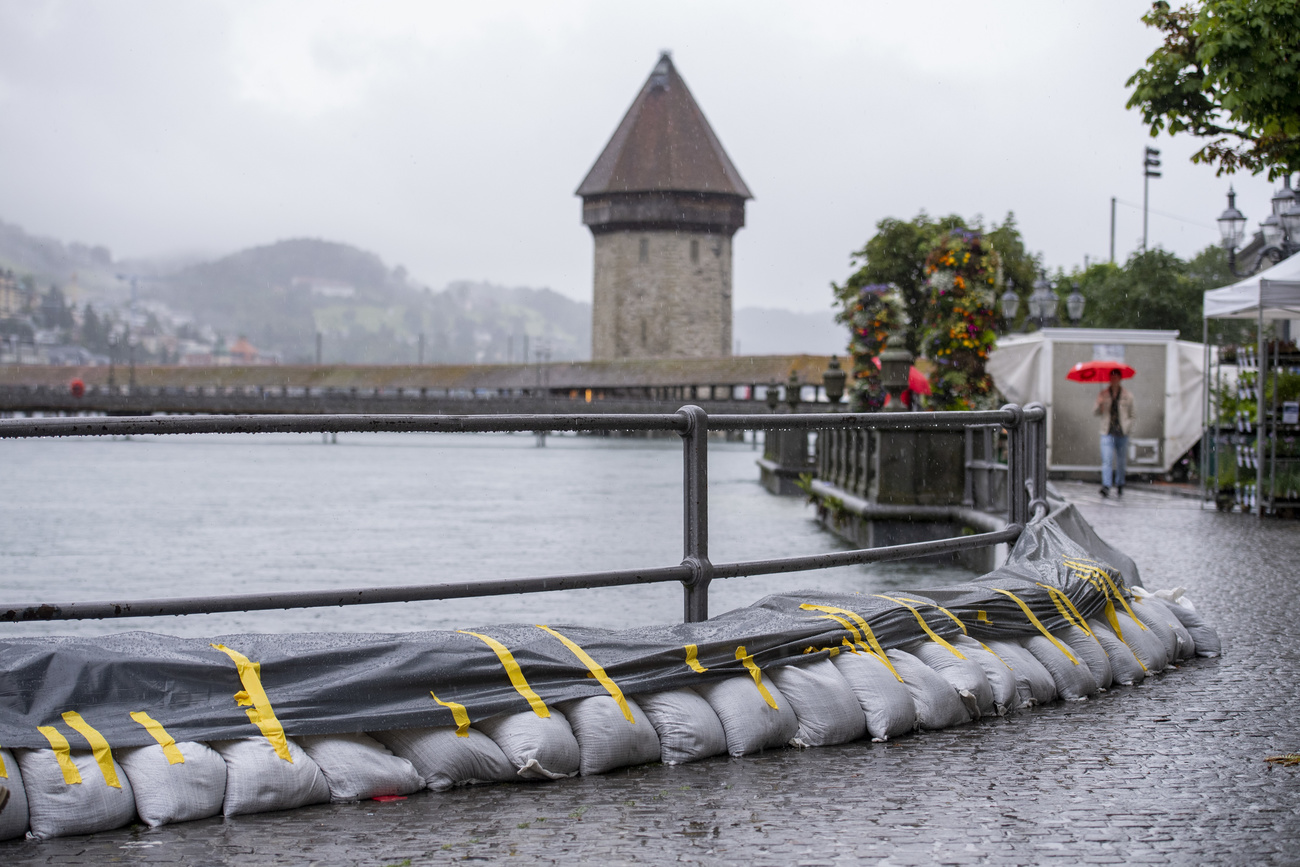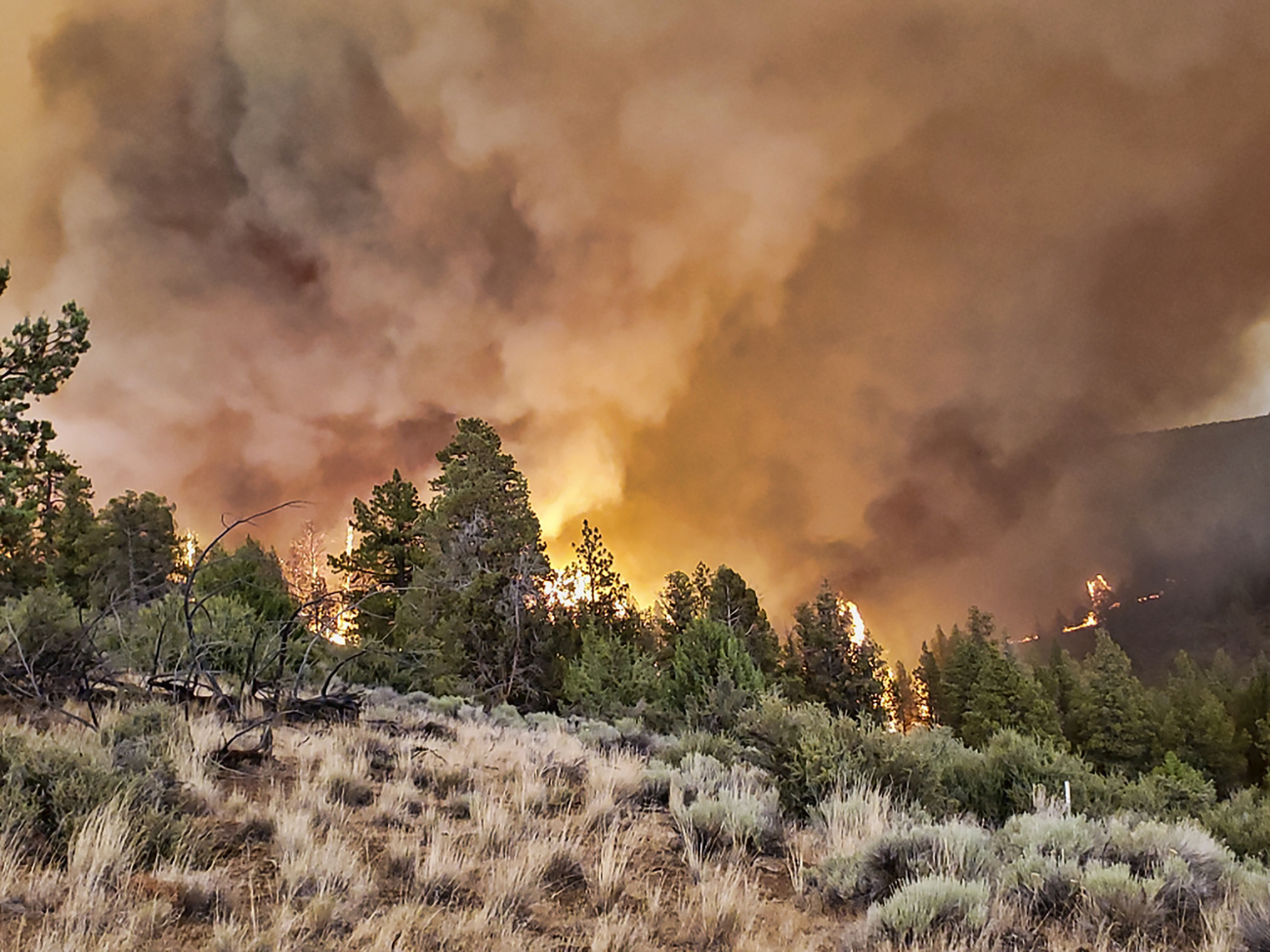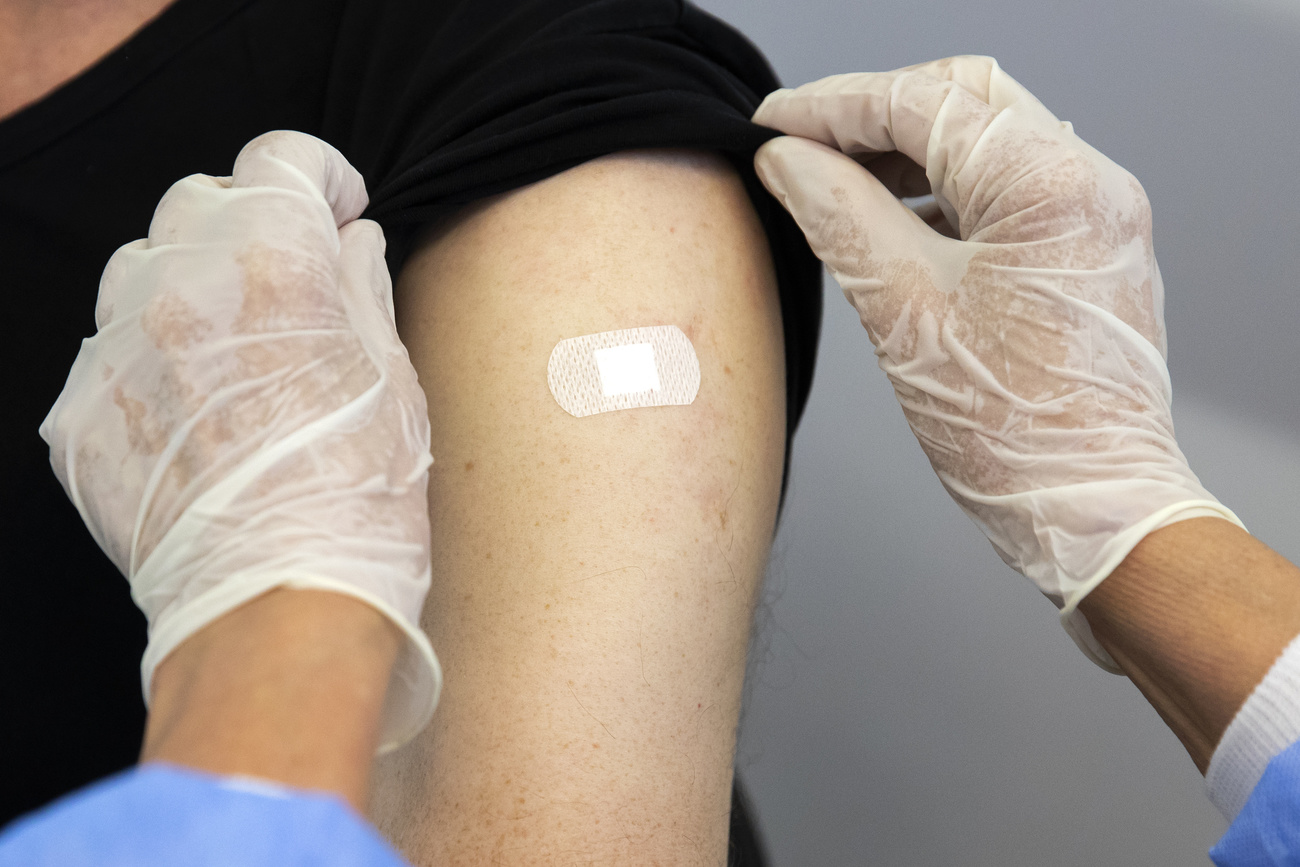

Switzerland Today
Hello from Bern,
Where for a third day running, and not the last, we are fixated on water-levels: Lake Lucerne (434.7 metres, a metre above normal), Lake Thun (558.34m, or four millimetres above high-water mark), Lake Zurich (just under the high-water mark, but at “alarm level 4”), etc. The country hasn’t been washed away, yet, but emergency services aren’t celebrating, yet. Hopefully it’s drier where you are.

In the news Research snub, Federer forfeit, Swisscom sorry
Switzerland has been locked out of the EU’s Horizon Europe research funding programme until further notice. The news comes after the Swiss government’s decision in May to walk away from seven years of talks on a treaty to simplify bilateral relations with Brussels. Horizon Europe, the world’s biggest research and innovation funding programme, has a budget of €95 billion (CHF103 billion) for the 2021-2027 period.
Roger Federer has pulled outExternal link of this year’s Tokyo Olympics due to a recurring knee injury. Federer, who has basically won everything else in tennis, is now extremely unlikely to ever add an Olympic singles title to his list (unless he manages it in 2024, aged 43). A “very disappointed” Federer said he will cheer on the Swiss Olympic squad “from a distance”. Speculation now turns to the retirement plans of the soon-to-be-40-year-old living deity.
Swisscom CEO Urs Schaeppi has apologised after a network breakdown last week meant emergency numbers couldn’t be reached by callers for eight hours. The outage happened just as torrential rain was increasing the risk of floods in many parts of the country. “A software update led to a malfunction that triggered a domino effect,” Schaeppi told the NZZ. It’s not the first time such a problem has come up. Schaeppi maintains that Swisscom’s networks are “among the best in the world”.

Deep Dive Weather extremes and the climate question
After the storms, downpours, and damages of Monday night to Tuesday morning, the country is now looking nervously at its saturated rivers and lakes, set to be topped up by more rain before the end of the week. As SRF’s 10 vor 10 programme reported last night, however, Switzerland isn’t alone in having suffered an “extreme weather event” recently: what with wildfires in California, storms in New York, savage heat in Canada, and record temperatures in Scandinavia, it has been a meteorologically intense month.
10 vor 10 also didn’t shy away from the big questions: is this new, why is it happening, and are humans at fault? Sonia Seneviratne, Professor for Land-Climate Dynamics at ETH Zurich, reckons we are: extreme weather events increase as temperatures increase, she told SRF. And as long as we keep sending CO2 into the atmosphere, “it’s going to get worse”. Even if the goals of the Paris Climate Accord are reached – net-zero emissions by 2050 – we’ll still have more extreme weather, Seneviratne said: “we can’t go backwards”.
But beyond the gloomy assessment, politicians still have to meet the targets and limit the damage. As it happens, today also saw the EU unveil the latest plank of its “Green Deal” strategy. Wednesday’s announcements include ambitious electric car targets and a “carbon border tax”, which will slap tariffs on imports from polluting countries in a bid to protect European industry, which is subject to stricter standards. “Europe wants to show it’s possible to wean ourselves off fossil fuels – not just for the planet, but to maintain our standard of living,” EU Commission boss Ursula Von der Leyen said in the Tages-Anzeiger.
And non-EU member Switzerland? As we wrote yesterday, the EU’s carbon border tax is unlikely to affect Swiss businesses and exports, which are already subject to one of the highest emissions tax rates in the world. However, authorities here are watching Europe closely, and might consider introducing their own carbon border tax to prevent products (from China, for example) entering Europe via Switzerland. The immediate priority for Swiss climate policy is to sift through the debris of the recently voted-down CO2 law, and try to put together a new package more acceptable to the population.

What’s Trending Vaccine debates still prickly
After Emmanuel Macron said on Monday that Covid vaccinations would become mandatory for healthcare workers in France, Swiss interest in the question has picked up. But as RTS reported on Wednesday, such a scenario is “unlikely” in a country where the “legacy of a liberal policy towards public health” prevails. The Swiss state wouldn’t dream of “forcing a treatment on a citizen’s body”, RTS said. Legally, meanwhile, although mandatory jabs could be introduced in emergency situations, it could only apply to certain groups, not the whole population, Franziska Sprecher from the University of Bern told SRF.
This doesn’t mean there’s no debate: last week, 187,000 signatures were handed in to force another referendum on the government’s Covid law, and specifically the legal basis for the so-called Covid certificate. Does this certificate – which requires proof of either vaccination, recent test, or recovery to do things like travel or attend big events – amount to a “de facto” obligation to vaccinate? Is the certificate discriminatory? Or do citizens have a duty to “repay” the state for its pandemic efforts by now protecting themselves using the most effective means available?
Send us your feedback: We’d be happy to hear from you!
Dear readers,
Thanks for joining a small group of test readers for our daily briefing from Switzerland. Our “soft” launch has just started. This month we’ll be experimenting and fine-tuning the content and presentation. Please send any feedback. We especially want to know what you’d like to read about. What kind of coverage about Switzerland are you interested in? We’d love to hear from you. Write to us at this email.

In compliance with the JTI standards
More: SWI swissinfo.ch certified by the Journalism Trust Initiative





























